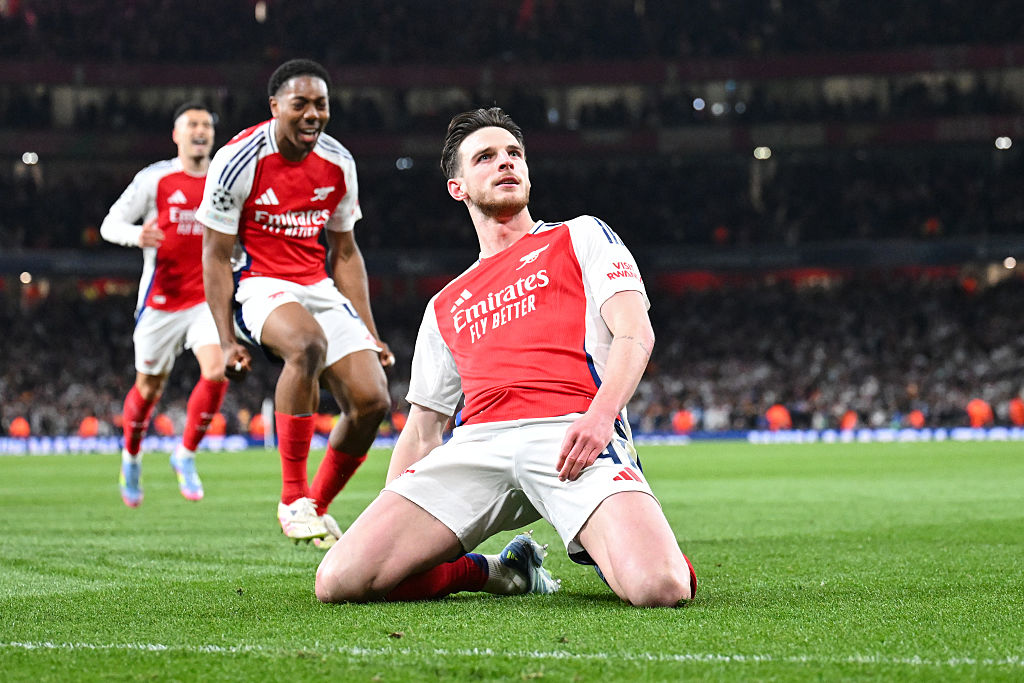Icarus allsorts
If you want to explain the mysterious decline of Arsene WengerâÂÂs Arsenal, you might have to gen up on Greek mythology.
The Icarus paradox sounds like a bad thriller, written by a ghost of the late Robert Ludlum, but it is actually an elegant theory, coined by a business writer called Danny Miller, to explain why apparently successful companies collapse.
In a nutshell, Miller says the reason is that their strengths, like IcarusâÂÂs waxwings, can turn into fatal weaknesses.
Between 2001/02 and 2004/05, Arsenal won the Premiership twice and were runners-up twice. They never amassed less than 78 points and their average tally was 84.5.
In the last four seasons, they have racked up three fourth place finishes and one third and averaged 72.5 points a season.
You can put this into a context that includes such factors as the advent of Roman AbramovichâÂÂs Chelsea, but the decline is still stark.
And, for me, MillerâÂÂs business theory helps explain it.
Get FourFourTwo Newsletter
The best features, fun and footballing quizzes, straight to your inbox every week.
One of the ways that strengths turn into weaknesses, he suggests, is that the bits of an organisation that are strongest â it might be product development or marketing or sales â become stars that begin to attract the resources previously devoted to less glamorous, but vital, bits of the company.
And that, in essence, is what has happened at Arsenal.
The qualities that were most attractive about WengerâÂÂs team in their all-conquering era â youth, fluidity, intelligence, pace and confidence in possession â have effectively taken over the team.
And the other qualities that side shared with many great teams â physical power, the ability to close down opponents in midfield, competitive spirit, experience of big games, a certain ruthless selfishness in front of goal, and competent defensive organization â have all been crowded out.
Zlatan IbrahimovicâÂÂs jibe that Arsenal are a junior team was unfair but not entirely stupid.
Instead of trophies, the fans are being consoled with visions of how good this team â if it stays together â will be at some unspecified point in the future.
This is the rhetoric you use to justify unexpected defeat in the FA Youth Cup, not the language that inspires the self-belief that led Barcelona to triumph last season.
You can see a similar process at work at many other great teams.
The Total Football that made Ajax legendary degenerated, within five years, into a regime where some players put their preferences ahead of the team.
Even the great Cruyff retreated into midfield either through exhaustion or, some have suggested, a desire to protect himself from enraged cloggers, and often abandoned his original role as the most creative attacking spearhead since Alfredo di Stefano.
Di Stefano was always the fulcrum of the greatest Real Madrid side, even though such geniuses as Puskas, Gento and Kopa surrounded him.
But as Real declined, they lost their shape and began to rely ever more heavily on Di Stefano and Puskas.
By 1964, Di Stefano, who was nearly 38, could not control the game against opposition as strong as Helenio HerreraâÂÂs Inter.
In the European Cup final that year, Di Stefano flitted in and out of the game. Real lost 3-1 and the Nerazzurri became the first team to win the trophy without losing a match.
The most blatant footballing example of MillerâÂÂs paradox is probably Real Madrid in the galacticos era, where the transfer budget was spent entirely on artistes, the craft and graft of Makelele was surplus to requirements, and the player who could have replaced him, Patrick Vieira, wasnâÂÂt offered the right deal because he wouldnâÂÂt sell enough shirts.
Real Madrid fans must hope that Florentino Perez has learned that shirt sales and artistry are not the only criteria on which teams can be judged although after watching his interview with Mihir Bose IâÂÂm not so sure.
In his blog, Bose draws entirely the wrong lesson from Hollywood history when analysing PerezâÂÂs summer spending spree.
He likens it to the Hollywood studio tactic of hiring as many stars as possible.
ItâÂÂs true that MGM, for example, used to boast it had more stars than in heaven. But those stars were often signed cheap, tied to punishing contracts, suspended if they didnâÂÂt want to make a particular film or were deemed to have broken the infamous morals clause and released as soon as they were deemed to be past their best.
Behind the glamour and the hype, Hollywood studios were run by ruthless autocrats who could â and did â break the careers of the worldâÂÂs greatest stars.
And the stars all knew that. When fear and autocracy no longer ruled Tinseltown, the studio system collapsed. IâÂÂm not sure if there is a parallel with Real there at all.
Bose â and Perez â are right to point out that Real, since the days of Santiago Bernabeu, has always been a presidentâÂÂs club.
This model worked brilliantly in the 1950s, when European football was a very different business, but has only worked sporadically since â either at Real or at other clubs like Inter.
One of the fascinating sub-plots this season will be to see whether the Bernabeu strategy can still work, 31 years after its originator died.
---------------------------------------------------
FourFourTwo.com: More to read...
More Professor Champions League blogsBlogs HomeChampions League News
News Home
